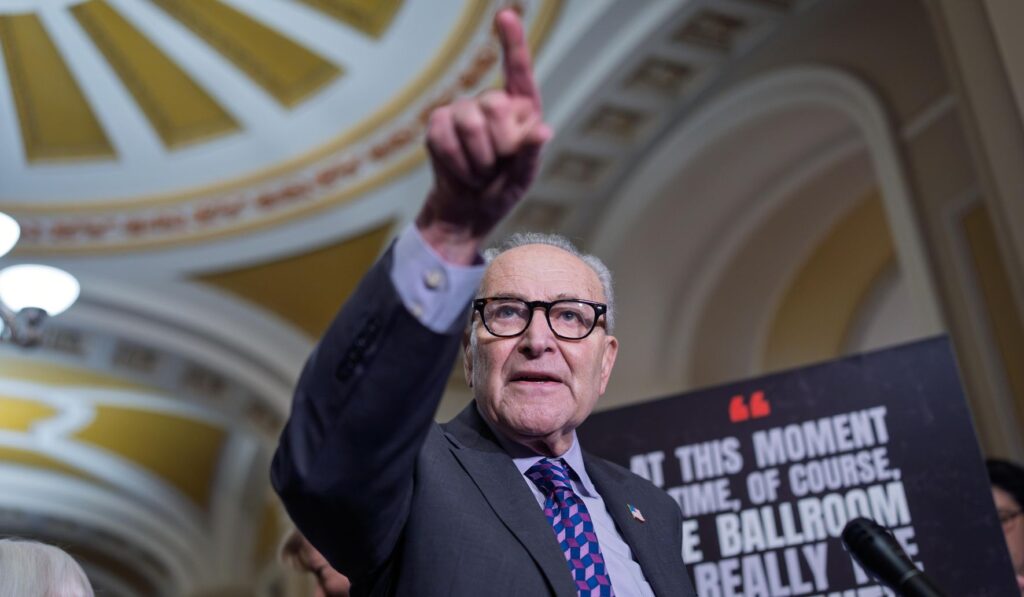The media has steered public perception during the record-breaking government shutdown in a way that downplays Democratic responsibility, leaving many voters without a full accounting of who created the impasse and why accountability matters.
The national conversation around the shutdown has been dominated by outlets that repeatedly frame Democrats as the reasonable party while minimizing the role of their tactics in prolonging the stalemate. Coverage often highlights sympathetic faces and emotional appeals, while downplaying the legislative choices and votes that shaped the outcome. This pattern makes it harder for citizens to judge cause and effect fairly.
Republicans see a clear double standard in which conservative voices and policy concerns are treated as tone deaf, while similar tactics from the other side are packaged as principled. The discrepancy is not just tone. It affects the policy questions voters can even access, shifting focus away from budget priorities, border security, and spending discipline. That tilt colors public understanding of who admits compromise and who digs in.
Taxpayers are the ones who feel the pain when Washington stalls, yet reporting too often misses the practical consequences. Federal workers face uncertainty, contractors lose work, and national priorities get delayed as funding holds up. Those real-world effects deserve straight, consistent coverage that highlights how specific votes and bargaining positions translate into tangible harm.
Media narratives also shape blame. When outlets portray Democrats as victims of partisan obstruction, it makes their own tactical choices less visible. Press accounts that skip the vote tallies or the internal party pressure campaigns leave gaps in the story. An informed public needs the full paper trail: who voted for what and which concessions were on the table.
Part of the problem is the cultivation of reliable access and friendly soundbites, which rewards performative moments over substantive reporting. Reporters too often default to the most dramatic voice in the room rather than drilling into legislative mechanics. That leads to pieces that read like political theater recaps instead of explanations of how policy is made or delayed.
There are also consequences for accountability inside the Democratic coalition. If officials face limited scrutiny, the incentive to negotiate and prioritize based on governing reality shrinks. Voters who want fiscal responsibility, border enforcement, and efficient government deserve coverage that tracks promises against votes. Without that, political accountability erodes.
Republicans argue that fair reporting would pressure all lawmakers to answer for their choices, not just offer staging for sympathetic optics. Real journalism would show which proposals were rejected, which were amended, and what concessions were realistically available. That kind of transparency would push leaders toward compromise that protects citizens rather than party messaging.
Coverage could improve by focusing more on the legislative record and less on the polished narratives from party communications teams. Hard numbers, timelines, and vote records are not glamorous, but they clarify responsibility and outcomes. This is especially important during a shutdown where every delayed program and furlough has a clear origin in votes and negotiations.
The media environment also affects future behavior. If one party can avoid accountability through selective coverage, the incentive structure in Washington shifts toward brinkmanship. Elected officials learn that spectacle and sympathetic framing can blunt the consequences of partisan choices. That harms governance and drains public trust in institutions meant to serve the country.
Voters want honesty about trade-offs and consequences, not curated storylines that absolve elected officials from responsibility. A more balanced approach to reporting would examine tactics and outcomes with the same skepticism, regardless of which party deploys them. Only then can the public weigh who acted to govern and who acted to score points.
Ultimately, the focus should be on restoring a media diet that privileges documentation and accountability over narrative convenience. That means lifting the fog around votes, funding offers, and negotiation stances so the electorate can see cause and effect. Fair reporting would force policymakers to answer directly for the choices that led to a record-breaking shutdown.



